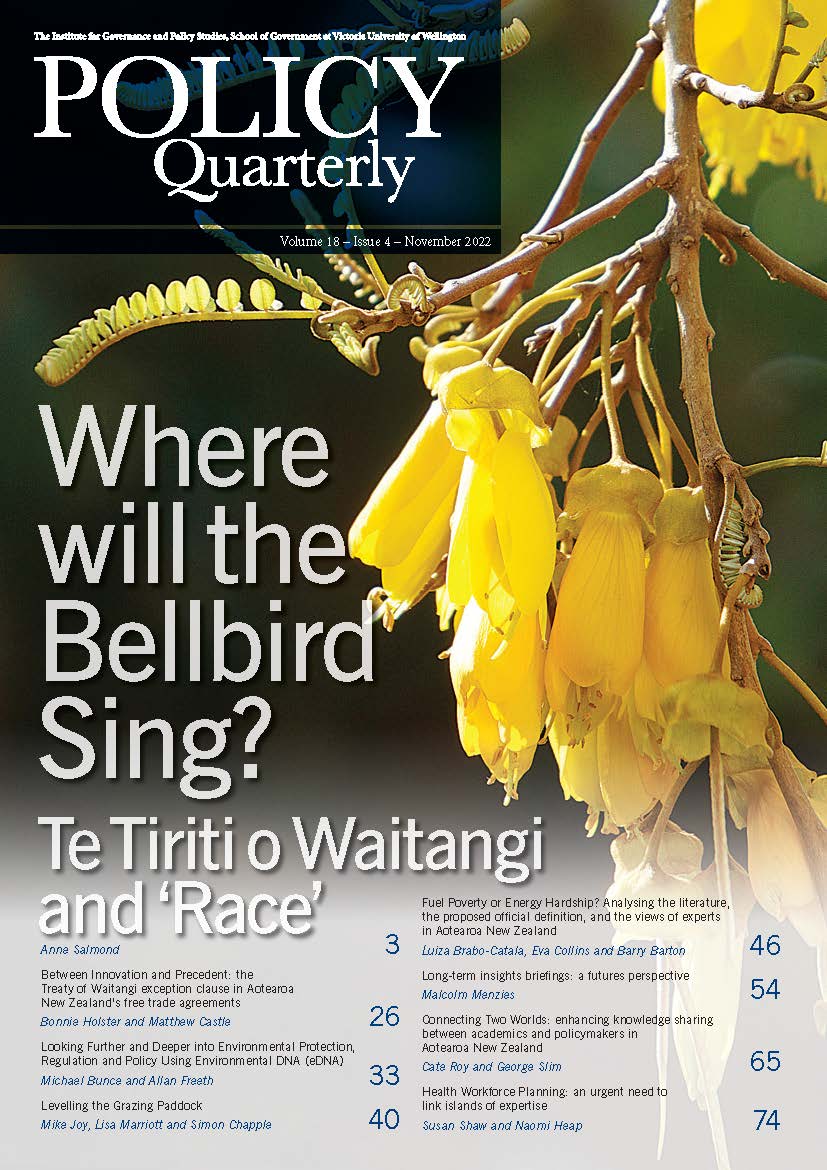Fuel Poverty or Energy Hardship? Analysing the literature, the proposed official definition, and the views of experts in Aotearoa New Zealand
DOI:
https://doi.org/10.26686/pq.v18i4.8016Keywords:
fuel poverty, energy hardship, energy poverty, energy wellbeing, energy policy, New ZealandAbstract
Fuel poverty is a serious condition in New Zealand, caused by the inability to afford sufficient energy services and resulting in detriment to health and wellbeing. Inconsistent ways of describing and measuring fuel poverty affect the perception and depth of the issue and the proposed interventions. This article analyses the proposed definition and indicators of energy hardship developed by the Ministry of Business, Innovation and Employment, in addition to the literature and the perspectives of five New Zealand experts. Findings suggest that the proposed energy hardship description and measures are well-aligned with the recommendations given by the interviewed experts and the literature findings on fuel poverty, which bodes well for effective interventions to minimise the issue.
Downloads
Downloads
Published
Versions
- 2022-11-22 (2)
- 2022-11-06 (1)
Issue
Section
License
Permission: In the interest of promoting debate and wider dissemination, the IGPS encourages use of all or part of the articles appearing in PQ, where there is no element of commercial gain. Appropriate acknowledgement of both author and source should be made in all cases. Please direct requests for permission to reprint articles from this publication to Policy-Quarterly@vuw.ac.nz.



